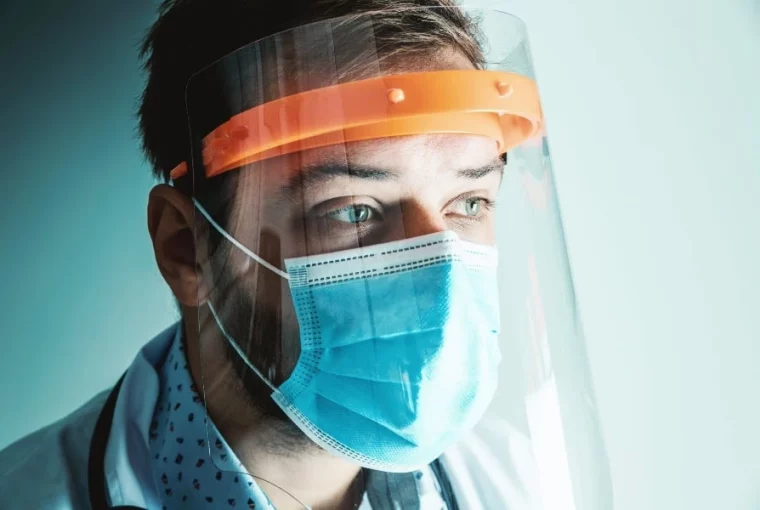Our body is vulnerable to infectious diseases. Our system may have its way of protecting itself from disorders, but it may not be enough to ward off all these threats. Getting sick may also be inconvenient because you need to buy prescribed medication which may be costly.
Organisms like bacteria, viruses, parasites, and fungi cause infectious diseases. If the body doesn’t have enough defense to fight back, the symptoms may be more terrible. Some are even contagious.
Health institutions are widening their research to treat different kinds of infectious diseases and prevent them as much as possible. Learn more about one of your health’s archenemies by reading health books or searching through a training website.
Stop the spread! Increase your protection by doing these tips:
1. Proper Hygiene
Personal hygiene is one of the most effective protection against diseases. Consider regularly taking a bath to cleanse your body from sweat to viruses, fungi, and bacteria that may have attached to your body due to air or from previous physical contact. You may use an anti-bacterial soap to ensure germs won’t last long.
In addition, we often use our hands to do our tasks. From opening a doorknob or refrigerator to handshakes, these are just some of our routines that may make us prone to infectious diseases.
Wash your hands regularly by:
Wetting Your Hands By Using Clean Water
Do you want to feel a calming breeze of cold water, or are you much more comfortable if it’s way warmer? You may use either warm or cold water to wash your hands. After all, either temperature removes the same number of germs.
Using A Bar Or Liquid Soap
Thoroughly rub your hands using anti-bacterial soup. The World Health Organization (WHO) suggests that washing your hands with soap and water may take 20 seconds to be effective. Gently but surely wash your palm, fingers, and the skin between them. Then, rinse your hands to remove the soap residue.
Drying Your Hands
Wet hands may spread germs much easier. You may dry your hands with a clean towel or an air dryer. Avoid drying your hands using your clothes. A dirty piece of cloth may contaminate your hands and make your 20-second handwashing session all for naught.
Given how prone our hands are to germs, the WHO also recommends washing our hands regularly. Wash your hands after using the toilet, handshaking, and even after touching your nose.
2. Don’t Share Utensils
Utensils may also be a potential cause of spreading germs. Don’t use the utensils that others use, even if the people you’re with at home are family members. Aside from hand contact, utensils like spoons and forks may have germs ready to jump in for a new human host. Consider having your own designated utensils or use disposable utensils instead to prevent contamination.
3. Don’t Go Outside If Not Needed
Infectious diseases can spread through the air. Crowds and other substances outdoors may carry germs that may be harmful to our health. Not all facilities outside may not have enough sanitation to keep them away from bacteria and viruses.
Aside from this, others may not be sneezing or coughing, but they may only be asymptomatic yet have infectious diseases like the flu. Consider not going out if you think the reason why you’re leaving your home isn’t that important.
4. Wear A Face Mask
If you need to leave the comfort of your home, wear a face mask. Wearing one can increase your protection from harmful substances that can transmit diseases through the air. You may find them uncomfortable, though, so consider choosing your preferred facemask from shops that are suited for your taste.
5. Get Vaccinated
Getting vaccinated may help protect your body against infectious diseases by boosting your immune system and creating antibodies powerful enough to knock off a potential threat. You may be uncertain about this because some vaccination substances may cause side effects, though they will wane in time. Aside from this, you may find medical needles frightening, but it’s worth the shot. Consider letting yourself go to a health center to get your dose.
6. Eat Nutritious Food
Our body has a natural ability to protect itself against a potential threat even to infectious diseases. Consider having a healthy diet to support your body’s immune system. Vitamins and other supplements are helpful to get the job done and to keep you healthy. Prevent the spread of germs by making it draw its last breath in you.
Conclusion
Infectious diseases are harmful illnesses that may cause harm to our health. Some of them are contagious and deadly, so we must protect our health and the people around us by being mindful of ways to prevent their spread. The government and other institutions are constantly guiding the public to do so. To make it most effective, be responsible for your wellness.




